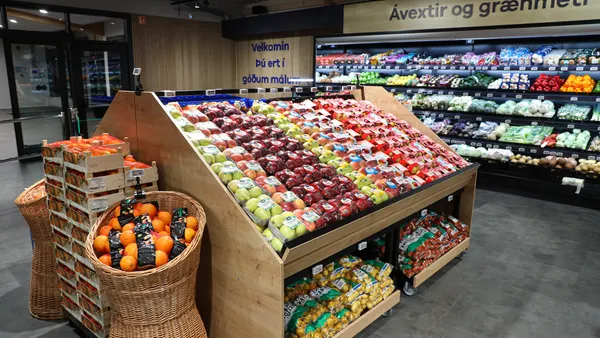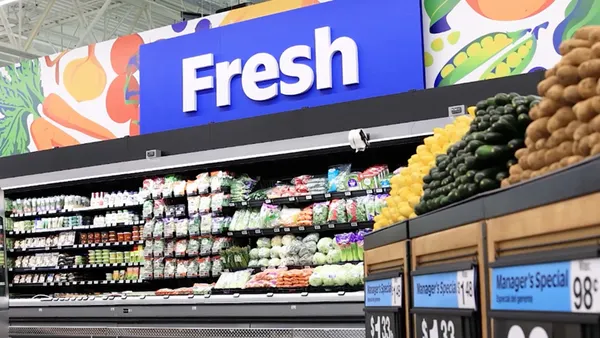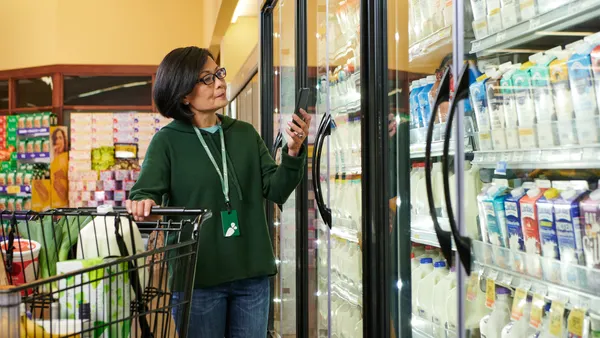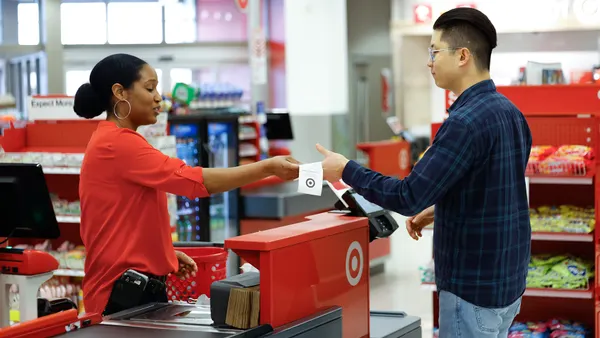Dive Brief:
-
Target announced it will accept contactless payments, including Apple Pay, Google Pay, Samsung Pay and contactless cards from Visa and Mastercard at all of its roughly 1,850 U.S. store locations, according to the retailer’s A Bullseye View blog. Meanwhile, Hy-Vee will begin accepting Apple Pay at all 245 of its Midwestern stores in the coming weeks, according to a release.
-
Checkout terminals at Target stores will now have an activated contactless symbol, allowing shoppers who have enabled mobile payment capability on their smartphones or wearables to pay by holding the device near the terminal’s card reader. Shoppers with contactless credit or debit cards can tap their cards on the reader screen to pay.
-
In addition to gaining acceptance at Target and Hy-Vee, Apple Pay will now also be accepted in-store at all 3,000 Speedway locations, more than 7,000 Taco Bell locations and 2,200 Jack in the Box restaurants in the next few months, according to the Apple press release.
Dive Insight:
Target’s move to join the contactless payment crowd comes a little over a year after the retailer announced its own Target mobile wallet offering in December 2017. That capability allowed shoppers to make mobile payments using their Target REDcard credit and debit cards.
With this week’s announcement, Target takes the next step in accepting another alternative form of payment — contactless based on near-field communications technology that can be used via NFC-enabled phones or cards. Many more retailers have begun to accept contactless payments, often being driven to do by the increasing use of Apple Pay among consumers.
Before this, Target and Walmart were two of the largest remaining Apple Pay holdouts among big-name retailers. Several other retailers also balked at accepting Apple Pay for years before reversing course in recent months. However, it’s also possible that Target's gradual migration to accept contactless payments, including Apple Pay, was part of a broader strategic plan. The retailer may have simply wanted to create its own wallet app first and allow it to gain a foothold before accepting other forms of mobile and "tap ‘n go" payments.
In a crowded mobile payments space, it remains unclear how important retailers’ self-branded payment apps will continue to be. It may strengthen bonds with some customers to have payments, store credit/debit card membership and loyalty program participation all integrated in a store-branded app.
However, to really provide the best possible checkout experience to its customers, Target also needs to be flexible about supplementing that app with alternative payment methods.
That’s especially true at a time when more stores are embracing cashierless checkout capabilities, according to Michael Jaszczyk, CEO of GK Software. He told Retail Dive via email, "While checkout-free stores are grabbing headlines, it’s incremental steps like this that have an immediate and powerful impact on promoting a frictionless customer experience. The highlight for me is the integration with the Wallet feature in the Target App that connects the payments process to loyalty and discounting opportunities, delivering a seamless all-in-one benefit at the checkout. While adopting contactless payments doesn’t seem like a radical departure from existing processes, it is a key step towards the goal of eliminating existing pain points."













